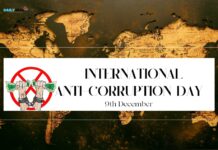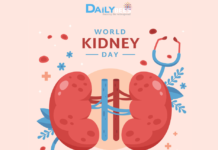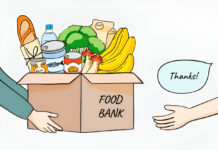The International Day Against Drug Abuse and Illicit Trafficking is observed annually on June 26th. It serves as a global reminder of the impact of drug abuse and the importance of combating illicit drug trafficking. The day aims to raise awareness about the dangers of drug abuse and promote efforts to prevent drug addiction, treat drug dependence, and address the illegal drug trade.
Importance of International Day Against Drug Abuse and Illicit Trafficking
The United Nations Office on Drugs and Crime (UNODC) plays a central role in coordinating activities for this day. The UNODC works with governments, organizations, and individuals worldwide to promote drug control initiatives, support prevention and treatment programs, and raise public awareness.
The International Day Against Drug Abuse and Illicit Trafficking encourages countries to enhance international cooperation in fighting drug-related crimes, sharing information, and supporting each other’s efforts to address drug abuse and trafficking. It also seeks to encourage communities to take an active role in preventing drug abuse by promoting education, fostering healthy lifestyles, and providing support to individuals and families affected by drug addiction.
Various events, campaigns, and initiatives are organized globally on this day to highlight the harmful effects of drug abuse, emphasize the importance of drug prevention and treatment, and showcase successful interventions. Governments, non-governmental organizations, and communities organize workshops, conferences, exhibitions, and public awareness campaigns to engage individuals and communities in the fight against drug abuse and illicit drug trafficking.
The International Day Against Drug Abuse and Illicit Trafficking serves as a platform to advocate for evidence-based policies, comprehensive prevention programs, accessible treatment services, and support for individuals and families affected by drug addiction. It underscores the need for international cooperation to combat drug trafficking networks and disrupt the supply chain of illicit drugs.
By observing this day, the international community reaffirms its commitment to addressing the challenges posed by drug abuse and illicit drug trafficking, striving towards a world free from the harmful effects of drugs and their associated criminal activities.
To reduce drug abuse and illicit trafficking, various activities and measures are implemented at local, national, and international levels. Here are some common strategies and activities:
Prevention Programs: Governments, non-governmental organizations (NGOs), schools, and community groups develop and implement prevention programs to educate individuals about the dangers of drug abuse. These programs often focus on promoting healthy lifestyles, building resilience, enhancing life skills, and providing information on the risks and consequences of drug use.

Public Awareness Campaigns: Public awareness campaigns are launched to inform and educate the general public about the risks and consequences of drug abuse. These campaigns use various mediums such as television, radio, social media, and print materials to disseminate information, raise awareness, and promote messages of prevention.
Education and Skill Building: Educational institutions play a crucial role in providing drug education to students. Curricula may include lessons on the harmful effects of drugs, decision-making skills, assertiveness training, and the development of coping mechanisms to resist peer pressure. Education and skill-building programs are not limited to schools and can extend to community centers and workplaces.
Treatment and Rehabilitation: Accessible and effective treatment services are vital in addressing drug addiction. Governments and organizations work to ensure that individuals with drug dependency have access to evidence-based treatment options, such as counseling, medication-assisted treatment, and rehabilitation centers. Support services for recovery and reintegration into society are also essential components of the treatment process.
International Cooperation: Governments collaborate with international organizations, such as the United Nations Office on Drugs and Crime (UNODC), to enhance international cooperation in combating drug trafficking. This cooperation involves information sharing, joint operations, capacity building, and technical assistance to strengthen law enforcement and border control measures.
Social Support and Aftercare: Providing social support and aftercare services to individuals recovering from drug addiction is crucial for long-term success. Support groups, counseling services, vocational training, and employment assistance help individuals reintegrate into society and lead productive lives free from drug abuse.
These efforts, combined with the commitment of individuals, communities, and governments, are essential in the fight against drug abuse and illicit drug trafficking. By working together and prioritizing prevention, treatment, and international cooperation, we can create a world where individuals are protected from the harms of drugs and where communities thrive in health and well-being





































